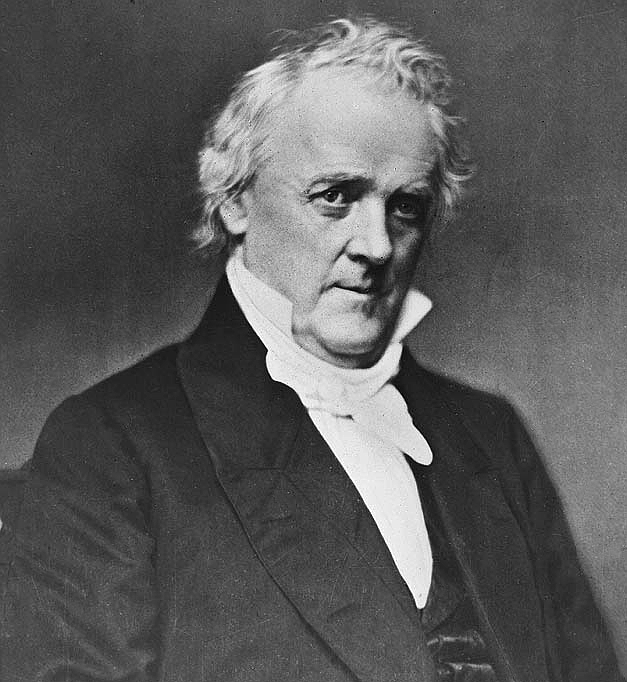 A recurring question in commercial arbitration is the amount of detail required for a “reasoned award’ – described generally as “something short of findings and conclusions but more than a simple result.” The Fifth Court provides a helpful example in YPF S.A. v. Apache Overseas, Inc., which quotes the relevant part of the arbitrator’s award and holds: “KPMG noted that it based its analysis on the parties’ statements and accounting records, pointed to its finding on the accrual of liabilities, and explained what documentation it found relevant in evaluating the proper refund amount.” No. 17-20802 (May 24, 2019).
A recurring question in commercial arbitration is the amount of detail required for a “reasoned award’ – described generally as “something short of findings and conclusions but more than a simple result.” The Fifth Court provides a helpful example in YPF S.A. v. Apache Overseas, Inc., which quotes the relevant part of the arbitrator’s award and holds: “KPMG noted that it based its analysis on the parties’ statements and accounting records, pointed to its finding on the accrual of liabilities, and explained what documentation it found relevant in evaluating the proper refund amount.” No. 17-20802 (May 24, 2019).
Monthly Archives: May 2019
 The Texas Uniform Fraudulent Transfer Act provides a potential defense to a party who receives an otherwise-fraudulent transfer in “good faith.” That said, the exact contours of that defense are not completely clear, leading the Fifth Circuit to vacate an earlier panel opinion on the issue, to now certify this question to the Texas Supreme Court:
The Texas Uniform Fraudulent Transfer Act provides a potential defense to a party who receives an otherwise-fraudulent transfer in “good faith.” That said, the exact contours of that defense are not completely clear, leading the Fifth Circuit to vacate an earlier panel opinion on the issue, to now certify this question to the Texas Supreme Court:
“Is the Texas Uniform Fraudulent Transfer Act’s ‘good faith’ defense against fraudulent transfer clawbacks, as codified at Tex. Bus. & Com. Code § 24.009(a), available to a transferee who had inquiry notice of the fraudulent behavior, did not conduct a diligent inquiry, but who would not have been reasonably able to discover that fraudulent activity through diligent inquiry”
Janvey v. GMAG, LLC, No. 17-11526 (May 24, 2019).
 A remarkably long-lived case about the collapse of Enron came to an end in Lampkin v. UBS Fin. Servs., Inc.: “[Plaintiffs[‘] Securities Act claims fail because their participation in the Employee Stock Option Plan was compulsory and employees furnished no value, or tangible and definable consideration in exchange for the option grants. The Court in [Int’ Brotherhood of Teamsters v. Daniel, 439 U.S. 551 (1979)] rejected the idea that the exchange of labor was sufficient consideration in the context of a compulsory, non-contributory pension plan—the same logic applies to the option plan at issue here. Plaintiffs made no investment decision in the grant of the options, the Enron plans were compulsory and non-contributory. The fact that plaintiffs would eventually make an affirmative investment decision—whether to exercise the option or let it expire—at some point in the future is of no consequence. Plaintiffs’ claims are based explicitly on the grant of the option, not the exercise of that option.” No. 17-20608 (May 24, 2019) (emphasis added).
A remarkably long-lived case about the collapse of Enron came to an end in Lampkin v. UBS Fin. Servs., Inc.: “[Plaintiffs[‘] Securities Act claims fail because their participation in the Employee Stock Option Plan was compulsory and employees furnished no value, or tangible and definable consideration in exchange for the option grants. The Court in [Int’ Brotherhood of Teamsters v. Daniel, 439 U.S. 551 (1979)] rejected the idea that the exchange of labor was sufficient consideration in the context of a compulsory, non-contributory pension plan—the same logic applies to the option plan at issue here. Plaintiffs made no investment decision in the grant of the options, the Enron plans were compulsory and non-contributory. The fact that plaintiffs would eventually make an affirmative investment decision—whether to exercise the option or let it expire—at some point in the future is of no consequence. Plaintiffs’ claims are based explicitly on the grant of the option, not the exercise of that option.” No. 17-20608 (May 24, 2019) (emphasis added).
 Valderas, the plaintiff in an excessive-force case, opposed the defendant’s motion to strike with a single argument – that the defendant had failed to satisfy the conference requirement of N.D. Tex. Local Rule 7.1. The district court disagreed, as did the Fifth Circuit: “Valderas cites to only one decision explicating the meaning of the local rule in question and implies that the decision establishes that a telephone conversation is necessary to satisfy the conference requirement. The decision explicitly notes, however, that the conference requirement can be met through a written conferral.” Valderas v. City of Lubbock , No. 18-11023 (May 21, 2019) (unpublished) (emphasis added) (applying Dondi Props. Corp. v. Commerce Sav. & Loan Ass’n, 121 F.R.D. 284, 290 (N.D. Tex. 1988) (en banc) (per curiam)).
Valderas, the plaintiff in an excessive-force case, opposed the defendant’s motion to strike with a single argument – that the defendant had failed to satisfy the conference requirement of N.D. Tex. Local Rule 7.1. The district court disagreed, as did the Fifth Circuit: “Valderas cites to only one decision explicating the meaning of the local rule in question and implies that the decision establishes that a telephone conversation is necessary to satisfy the conference requirement. The decision explicitly notes, however, that the conference requirement can be met through a written conferral.” Valderas v. City of Lubbock , No. 18-11023 (May 21, 2019) (unpublished) (emphasis added) (applying Dondi Props. Corp. v. Commerce Sav. & Loan Ass’n, 121 F.R.D. 284, 290 (N.D. Tex. 1988) (en banc) (per curiam)).
 Yesterday’s District of the District of Columbia opinion about the Congressional subpoena to Mazars (President Trump’s accounting firm), offers a fascinating summary of the history of legislative-executive friction about similar subpoenas, including the complaints of the rarely-quoted President Buchanan. In an echo of McCulloch v. Maryland about the broad scope of Congress’s power to legislate, this opinion describes a similarly-broad scope of the power to investigate before legislating.
Yesterday’s District of the District of Columbia opinion about the Congressional subpoena to Mazars (President Trump’s accounting firm), offers a fascinating summary of the history of legislative-executive friction about similar subpoenas, including the complaints of the rarely-quoted President Buchanan. In an echo of McCulloch v. Maryland about the broad scope of Congress’s power to legislate, this opinion describes a similarly-broad scope of the power to investigate before legislating.
![]() Cohen argued, inter alia, that a letter from Allstate “merely denied ‘coverage for various items'” and thus lacked adequate specificity to effectively deny his flood-insurance claim (and thus start a 1-year federal statute of limitations). The Fifth Circuit disagreed, observing that “not even the temptations of a hard case will provide a basis for ordering recovery contrary to the terms of [a] regulation, for to do so would disregard the duty of all courts to observe the conditions defined by Congress for charging the public treasury.” Cohen v. Allstate Ins. Co., No. 18-20330 (May 17, 2019) (citation omitted).
Cohen argued, inter alia, that a letter from Allstate “merely denied ‘coverage for various items'” and thus lacked adequate specificity to effectively deny his flood-insurance claim (and thus start a 1-year federal statute of limitations). The Fifth Circuit disagreed, observing that “not even the temptations of a hard case will provide a basis for ordering recovery contrary to the terms of [a] regulation, for to do so would disregard the duty of all courts to observe the conditions defined by Congress for charging the public treasury.” Cohen v. Allstate Ins. Co., No. 18-20330 (May 17, 2019) (citation omitted).
 Lopez v. Pompeo addressed an infrequent but fundamental issue of res judicata: “When this court affirms a judgment of the district court, but on different grounds than those adopted by the district court, it is the decision of this court, not the district court, that has preclusive effect . . . ‘[O]nce an appellate court has affirmed on one ground and passed over another, preclusion does not attach to the ground omitted from its decision.'” No. 18-40175 (May 14, 2019).
Lopez v. Pompeo addressed an infrequent but fundamental issue of res judicata: “When this court affirms a judgment of the district court, but on different grounds than those adopted by the district court, it is the decision of this court, not the district court, that has preclusive effect . . . ‘[O]nce an appellate court has affirmed on one ground and passed over another, preclusion does not attach to the ground omitted from its decision.'” No. 18-40175 (May 14, 2019).
On the topic of personal jurisdiction, recent Supreme Court cases emphasize that “[i]t is the defendant, not the plaintiff or third parties, who must create contacts with the forum State..” Walden v. Fiore, 571 U.S. 277 (2014). An interesting test of that principle arose in Carmona v. Leo Ship Management, No. 18-20248 (May 10, 2019), in which a stevedore sued for injuries  incurred in Houston while unloading pipe from a globe-circling freighter. He sued LSM, the company that by contract operated the M/V Komatsushima Star (right) (since, renamed the M/V Kacey, and moored in the Yellow Sea as of this post). LSM did not own the ship “and could not direct where it traveled, what it carried, or for whom it worked,” and thus tried to invoke Walden and related cases about jurisdiction arising from a “mere fortuity.”
incurred in Houston while unloading pipe from a globe-circling freighter. He sued LSM, the company that by contract operated the M/V Komatsushima Star (right) (since, renamed the M/V Kacey, and moored in the Yellow Sea as of this post). LSM did not own the ship “and could not direct where it traveled, what it carried, or for whom it worked,” and thus tried to invoke Walden and related cases about jurisdiction arising from a “mere fortuity.”
The Fifth Circuit observed:
- “[A] defendant’s contacts with a forum and the purposefulness of those contacts are distinct–though often overlapping –inquiries. Although tortious conduct within a forum ensures the existence of contacts it does not always guarantee that such contacts were deliberate.” (citation omitted);
- “Especially considering that the contract was freely terminable with two months’ notice, LSM was hardly compelled to travel to Texas against its will. Rather, it made a deliberate choice to keep its employees aboard a ship bound for Texas” and thus “purposely availed itself” of the Texas forum;
- But as to one of Carmona’s claims: “LSM presented undisputed evidence that a third party had stowed the pipes aboard the ship while it was outside the United States,” thus establishing that “the claim that the pipes were improperly stowed does not stem from LSM’s activities in Texas.”
 On May 16 at the Belo Mansion, the DBA Appellate Section presents a panel discussion among the eight newly-elected Justices of the Fifth Court of Appeals (a/k/a, the “Slate of Eight“), moderated by Justice Lana Myers, a 20-year veteran of the Fifth Court.. The Section’s announcement of the program goes on to say: “If you have a question you would like the panel to answer, please send it to DBAAppellateChair@gmail.com. The panel will try to answer pre-submitted questions during the presentation as time permits.”
On May 16 at the Belo Mansion, the DBA Appellate Section presents a panel discussion among the eight newly-elected Justices of the Fifth Court of Appeals (a/k/a, the “Slate of Eight“), moderated by Justice Lana Myers, a 20-year veteran of the Fifth Court.. The Section’s announcement of the program goes on to say: “If you have a question you would like the panel to answer, please send it to DBAAppellateChair@gmail.com. The panel will try to answer pre-submitted questions during the presentation as time permits.”
 The relator in Lemon v. Nurses to Go., Inc. alleged violations of the False Claims Act about several aspects of the defendants’ hospice-care services. Applying Universal Health Services v. United States ex rel. Escobar, 136 S.Ct. 1989 (2016), the Fifth Circuit reversed the district court’s finding that the issues were immaterial, finding that they (1) related to conditions of payment; (2) the government would have enforced those conditions had it known of the problems identified by relators; and (3 the issues were not “minor or insubstantial.” No. 18-20326 (May 7, 2019).
The relator in Lemon v. Nurses to Go., Inc. alleged violations of the False Claims Act about several aspects of the defendants’ hospice-care services. Applying Universal Health Services v. United States ex rel. Escobar, 136 S.Ct. 1989 (2016), the Fifth Circuit reversed the district court’s finding that the issues were immaterial, finding that they (1) related to conditions of payment; (2) the government would have enforced those conditions had it known of the problems identified by relators; and (3 the issues were not “minor or insubstantial.” No. 18-20326 (May 7, 2019).
 In the category of “not very surprising en banc votes”: After a plea for en banc review in a recent case about federal jurisdiction over injury claims arising from asbestos exposure at the Avondale Shipyard (in its heyday, the largest employer in Louisiana), the Fifth Circuit has accepted that case for en banc review. Latiolas v. Huntington-Ingalls, No. 18-30652 (May 8, 2019). (To the right, the launch at Avondale of a Knox-class frigate, an unheralded but stalwart antisubmarine-warfare vessel of the late Cold War.)
In the category of “not very surprising en banc votes”: After a plea for en banc review in a recent case about federal jurisdiction over injury claims arising from asbestos exposure at the Avondale Shipyard (in its heyday, the largest employer in Louisiana), the Fifth Circuit has accepted that case for en banc review. Latiolas v. Huntington-Ingalls, No. 18-30652 (May 8, 2019). (To the right, the launch at Avondale of a Knox-class frigate, an unheralded but stalwart antisubmarine-warfare vessel of the late Cold War.)
 A multi-million dollar judgment, in favor of a bankruptcy trustee suing for the estate, foundered on two problems about party identity:
A multi-million dollar judgment, in favor of a bankruptcy trustee suing for the estate, foundered on two problems about party identity:
- Injury? The estate (LSI) had no standing to seek damages about a substantial debt incurred to an alleged insider (Jabil), because: “[T]he millions of dollars awarded under Damage Element No. 1 represent Jabil’s injury, not LSI’s. Jabil manufactured and delivered the contractually agreed upon equipment to LSI. LSI benefitted from the equipment, and Ebert even leased and sold the equipment in Chapter 11 proceedings. Moreover, LSI did not pay the invoices on the equipment. Therefore, LSI benefitted and even had cash available for other needs.” (emphasis in original)
- Benefit? Stock sales involving affiliated entities did not established a personal benefit to alleged insiders (Apfel and Bartlett): “[E]bert tacitly admits that she
 provided evidence only for the nominee companies’ gains, not for Appel and Bartlett in their individual capacity. Manz’s calculations were based primarily on two documents: Schedule 7.B, which showed market sales of LSI stock, and a list of nominee companies with how many shares of LSI each owned as of September 9, 2011. Yet these documents only list companies and provide no proof of or insight into Appel and Bartlett as individuals.”
provided evidence only for the nominee companies’ gains, not for Appel and Bartlett in their individual capacity. Manz’s calculations were based primarily on two documents: Schedule 7.B, which showed market sales of LSI stock, and a list of nominee companies with how many shares of LSI each owned as of September 9, 2011. Yet these documents only list companies and provide no proof of or insight into Appel and Bartlett as individuals.”
Ebert v. DeJoria, No 18-10382 (April 30, 2019).
 While “[t]he Texas Supreme Court has not had occasion to determine whether a contract that is unsigned but otherwise enforceable may incorporate an unsigned document by reference,” that was the issue presented in Int’l Corrugated & Packing Supplies, Inc. v. Lear Corp. But in the context of an interlocutory appeal from denial of a motion to compel arbitration, the Fifth Circuit “declined[d] to resolve this novel question of Texas law here because the district court has not yet ruled on the enforceability of Lear’s purchase orders. Specifically, . . . how the parties entered the agreements at issue in this case—either through purchase orders, or phone calls or emails prior to the sending of purchase orders, or some other conduct—nor has it determined what effect, if any, the parties’ course of dealing has on such agreements [under the UCC].” No. 18-50167 (May 3, 2019) (unpublished).
While “[t]he Texas Supreme Court has not had occasion to determine whether a contract that is unsigned but otherwise enforceable may incorporate an unsigned document by reference,” that was the issue presented in Int’l Corrugated & Packing Supplies, Inc. v. Lear Corp. But in the context of an interlocutory appeal from denial of a motion to compel arbitration, the Fifth Circuit “declined[d] to resolve this novel question of Texas law here because the district court has not yet ruled on the enforceability of Lear’s purchase orders. Specifically, . . . how the parties entered the agreements at issue in this case—either through purchase orders, or phone calls or emails prior to the sending of purchase orders, or some other conduct—nor has it determined what effect, if any, the parties’ course of dealing has on such agreements [under the UCC].” No. 18-50167 (May 3, 2019) (unpublished).
 “[Mister Mudbug, Inc.] asserts that it relied on [Bloomin’ Brands, Inc.]’s representation that ‘MMI would have to substantially enlarge its production and manufacturing facilities’ if it wanted ‘to produce all of the food products that BBI would need in its nationwide restaurant operations.’ The district court held that this representation is a factual declaration, not a promise. We agree. It is not an assurance that BBI would award MMI larger contracts if it did expand; it is a statement informing MMI of the preconditions necessary to be in the running for a larger contract.” Mr. Mudbug, Inc. v. Bloomin’ Brands, Inc., No. 18-30626 (May 1, 2019) (unpublished) (emphasis added).
“[Mister Mudbug, Inc.] asserts that it relied on [Bloomin’ Brands, Inc.]’s representation that ‘MMI would have to substantially enlarge its production and manufacturing facilities’ if it wanted ‘to produce all of the food products that BBI would need in its nationwide restaurant operations.’ The district court held that this representation is a factual declaration, not a promise. We agree. It is not an assurance that BBI would award MMI larger contracts if it did expand; it is a statement informing MMI of the preconditions necessary to be in the running for a larger contract.” Mr. Mudbug, Inc. v. Bloomin’ Brands, Inc., No. 18-30626 (May 1, 2019) (unpublished) (emphasis added).
 Reed, whose sole income came from Social Security benefits, and who was subject to a Texas law requiring him to pay for GPS monitoring, contended that the law violated section 407(a) of the Social Security Act, which protects benefits from “execution, levy, attachment, garnishment, or other legal process.” (emphasis added).
Reed, whose sole income came from Social Security benefits, and who was subject to a Texas law requiring him to pay for GPS monitoring, contended that the law violated section 407(a) of the Social Security Act, which protects benefits from “execution, levy, attachment, garnishment, or other legal process.” (emphasis added).
To resolve Reed’s argument, the Fifth Circuit first summarized the general importance of statutory-construction canons, even in a focus on “plain meaning”: “Statutory language, like all language, is suffused with age-old interpretive conventions. And judges, like all readers, must be attentive not to words standing alone but to surrounding structure and other contextual cues that illuminate meaning.”
The Court then applied the concept of ejusdem generis: “‘Where general words follow specific words in a statutory enumeration, the general words are construed to embrace only objects similar in nature to those objects enumerated by the preceding specific words.’ Section 407(a) follows this familiar semantic structure, meaning the follow-on
phrase ‘other legal process’ is limited to processes like “execution, levy, attachment, [or] garnishment.” Common phrasing; common-sense meaning.” Reed v. Taylor, No. 17-20519 (May 2, 2019).
Celebrate the Cinco de Mayo with 5 key Dallas court of appeals cases from 2019!
 A significantly limited new version of the TCPA has passed the Texas House; a similar version is still pending in the Senate. The bill addresses several aspects of the statute’s application in business cases. While the lingering Erie issue about the TCPA’s application in federal court remains, the issue will have less ongoing significance if the Legislature reduces this statute’s force in commercial litigation.
A significantly limited new version of the TCPA has passed the Texas House; a similar version is still pending in the Senate. The bill addresses several aspects of the statute’s application in business cases. While the lingering Erie issue about the TCPA’s application in federal court remains, the issue will have less ongoing significance if the Legislature reduces this statute’s force in commercial litigation.